

1. First, make sure there are no errors in the program you wrote.
2. The first time I wrote a Web Project, until now, I have not been able to execute it successfully, so the best thing to create is a java Project.
Packaging steps:
1. Right-click on the project and select Export.
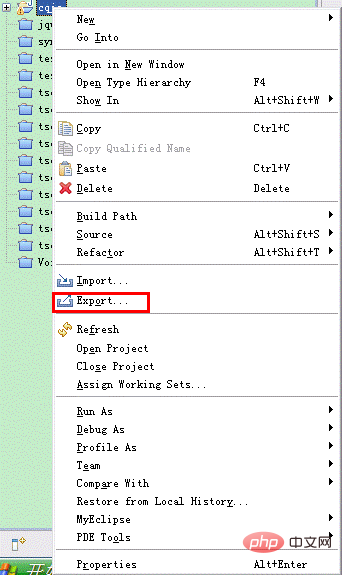
#2. Enter the interface below and select the JAR file under Java.
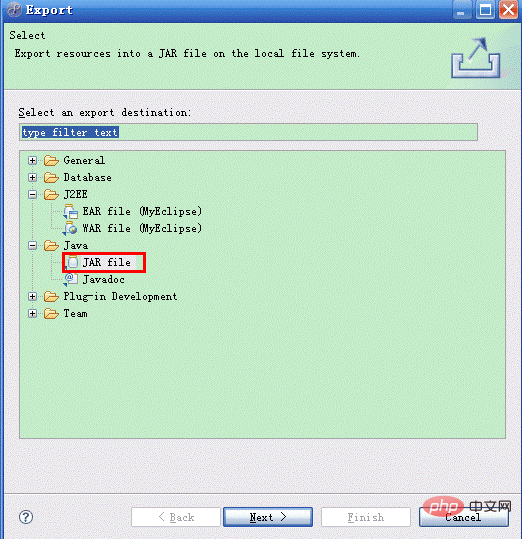
3. Select the project, confirm whether the necessary files are selected, and select the path to save the jar file package, as shown below:
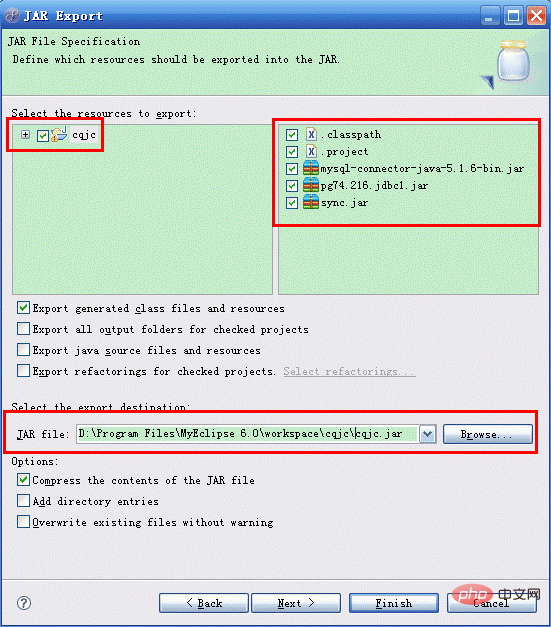
4. After completing step 3, click Next to enter the following interface:
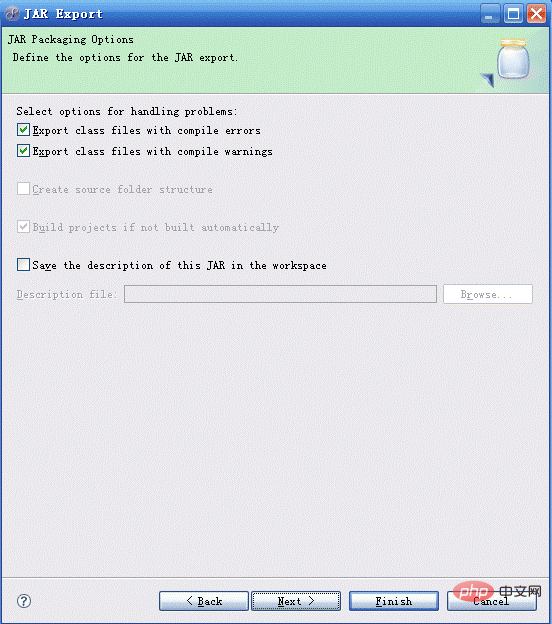
5. Click Next directly to enter the following interface:
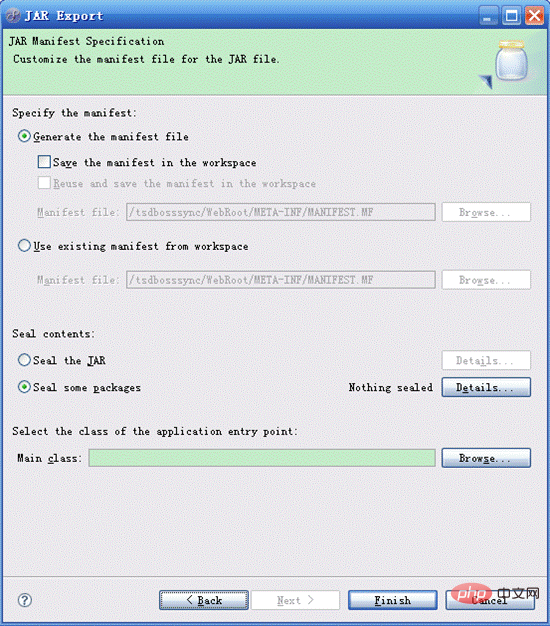
6. Click Finish directly, and the jar file package is completed.
Remarks:
1. You can choose some conditions according to your own needs.
2. Open the META-INF\MANIFEST.MF file under the jar file package and check whether the information is correct.

#Class-Path: This imports some other jar file packages needed for this project.
Main-Class: This is the path to the .class file of the class where the main() method is located, and there is a carriage return character at the end (for example: as shown above, the main() method is under the test package in the PostgresSQLSync class.)
Run the jar package under windows and confirm whether there are problems with the exported jar package:
1. Open the DOS command: switch to the path of this project through cd, and then , enter java -jar xxx.jar.
If the entered information is the same as the information output on the console when running the project, it means that the jar file package has been completed.
The following are some problems I encountered:
(1) In the DOS command, when the following error occurs, it means that Main-Class is not in META-INF\ Configured in the file MANIFEST.MF.

(2) In the DOS command, when the following error occurs, it means that there is no space entered after Class-Path: or Main-Class:.

php Chinese website, a large number of freeJava introductory tutorials, welcome to learn online!
The above is the detailed content of How to package java. For more information, please follow other related articles on the PHP Chinese website!